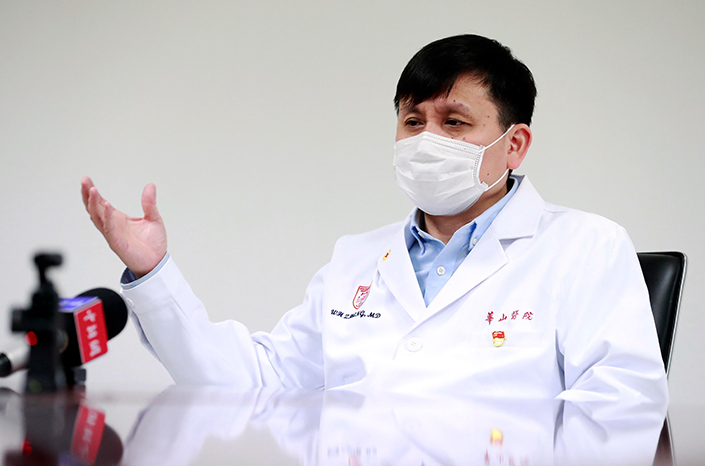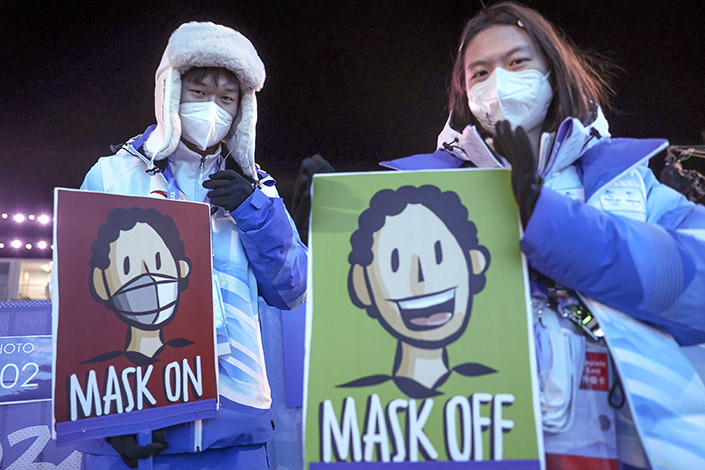
The success of the Beijing Winter Olympics demonstrated a new possibility for pandemic control and smooth global communication.
The closing ceremony of the Beijing Winter Olympics was held on the evening of Feb. 20. The singing of the theme song of 2008 Beijing Summer Olympics “You and Me” again seemed to bring everyone back to the summer of 2008 in Beijing, creating a moving feeling of nostalgia. We were expecting an ice and snow feast. We were also expecting barrier-free communication and shared wishes for a better future.
Our team has worked with other doctors to closely track the measures and data during the Winter Games, showing that amid a pandemic that has erected barriers around the world, the wisdom of pandemic control at the Beijing Winter Olympics allowed much-missed communication across borders, bringing a great surprise to the world.
Prior to the Beijing Winter Olympics, the Tokyo Summer Olympics held in 2021 explored smooth communication among countries amid the pandemic. The Tokyo Organizing Committee of the Olympic and Paralympic Games proposed four basic principles to limit the spread of the virus, namely wearing masks; testing, tracking and quarantining; social distancing; and paying attention to hygiene.
Although vaccination was not mandatory at the Tokyo Summer Olympics, 85% of the people in the Tokyo Olympic Village were vaccinated to protect the athletes from infection. But even so, 10 days before the opening ceremony, the number of confirmed cases started to increase due to infected people entering the host country. After the opening ceremony, the number of confirmed cases in Tokyo continued to climb. So we needed to do better in Beijing.

We all want to see freer communication as well as better pandemic control among countries around the world. However, it might seem impossible to achieve one without compromising the other.
Based on the model explored by the Tokyo Summer Olympics, the Beijing Winter Olympics put forward six principles: comprehensively promoting vaccination; full closed-loop management; setting up Covid-19 liaison officers; strengthening detection, tracking and quarantining of infected persons; social distancing; and strengthening health measures.
The closed-loop management system of the Beijing Winter Olympics featured accurate management and helped dramatically reduce new cases, minimizing the spread of the virus. As the Winter Olympics came to an end, there were no new Covid-19 cases in the host cities of Beijing and Zhangjiakou. Imported cases were also kept under control during the Games.
The Chinese Olympic Committee, alongside the medical community and anti-epidemic workers, has completed a future-oriented experiment. While sticking to the original path for pandemic prevention and control to protect the safety of the public and consolidating previous prevention and control results, an attempt has been made to create a relatively open environment in a closed-loop, seeking a better way to live with the virus and exploring a safe way of communication under the pandemic.
At the same time, the protective effect of the vaccine has been once again verified in the Winter Olympics, with no obvious adverse outcome in any of the cases. From the 437 cases confirmed during the Olympics, we can see that adequate and efficient vaccination offers strong scientific and technological support and a strong foundation for us to conquer the virus.
More importantly, the Beijing Winter Olympics, under certain circumstances, canceled quarantine requirement for certain international travelers, bridged the gap between countries in international epidemic prevention and control strategies, and maintained the balance between the zero-Covid policy and international exchanges to the greatest extent. As the global pandemic continues, the Beijing Winter Olympics provide us with valuable experience in closing up the gap in international epidemic prevention and control, and this experience is likely to be applied in political, economic and academic exchanges to promote further global interactions.
It will still take years for us to realize worldwide pandemic control and balance. However, humans’ strong need and desire for free communication should not be ignored. In this regard, the Beijing Winter Olympics has set a perfect example. We believe that with the wisdom of the Beijing Winter Olympics inspiring us to continue to take targeted and precise prevention and control measures, the Games will become an important milestone in our journey to a better future.
Speaking of the wisdom in epidemic prevention and control, I also agree with the words of the International Olympic Committee’s President Thomas Bach. The closing of the Beijing Winter Olympics is not the end, but a new beginning.
Zhang Wenhong is director of National Center of Infectious Diseases and director of Infectious Diseases Department of Huashan Hospital affiliated to Fudan University.
The views and opinions expressed in this opinion section are those of the authors and do not necessarily reflect the editorial positions of Caixin Media.
If you would like to write an opinion for Caixin Global, please send your ideas or finished opinions to our email: opinionen@caixin.com
Get our weekly free Must-Read newsletter.







